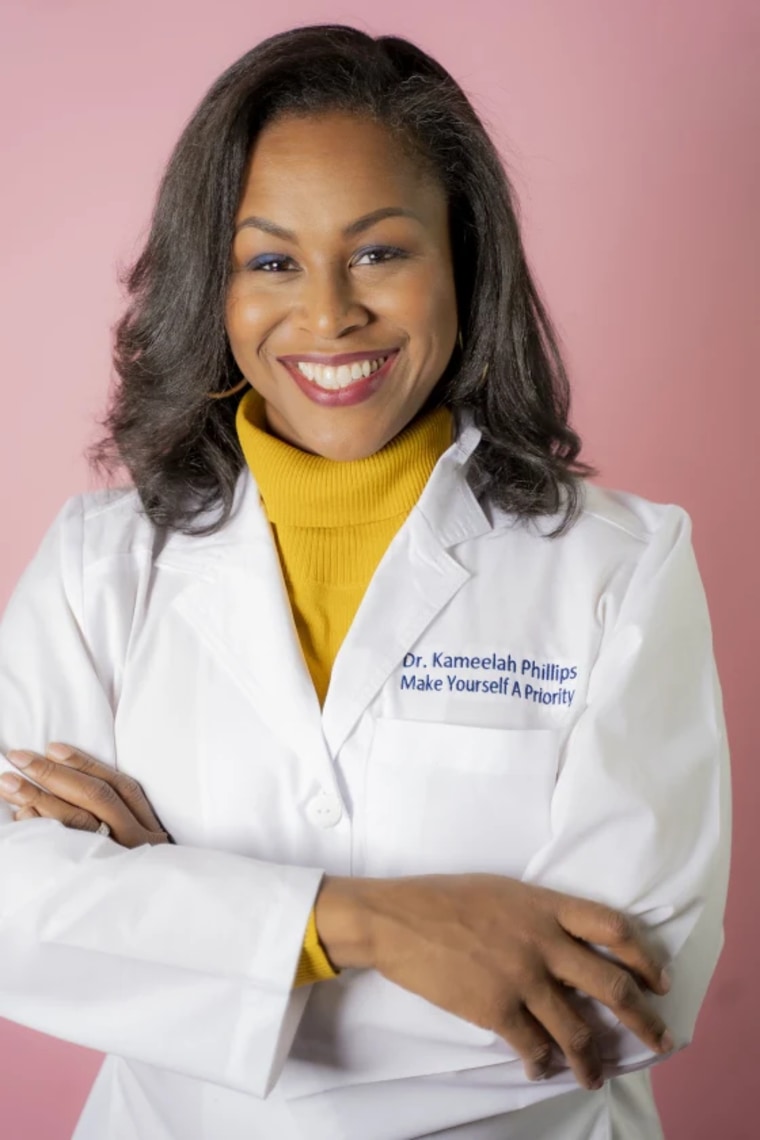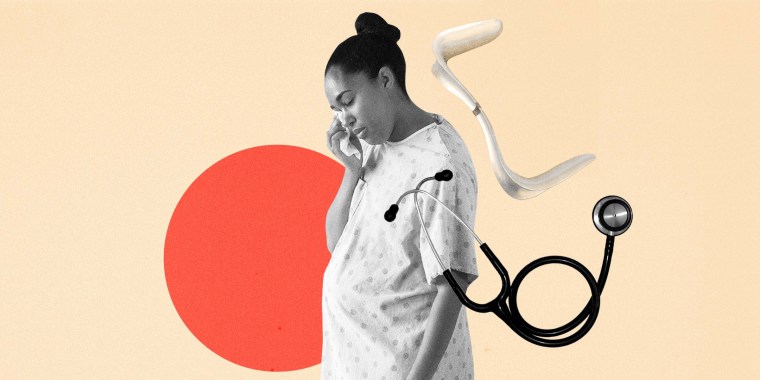Dr. Kameelah Phillips is an OB-GYN and founder of Calla Women’s Health in New York City. She specializes in health disparities, sexual health, menopause and lactation. She can be found on Instagram at Dr. Kameelah Says. In a conversation with TODAY, she discussed the need to address the history of racism in gynecological medicine and the lingering effects that impact patients today.
Recently, a colleague was discussing a patient's case with me. The patient had been experiencing bleeding and pelvic pain for more than a year, but others had dismissed her. When she finally came to the emergency room, she was diagnosed with advanced cervical cancer. Without even meeting this woman, I knew she was Black. I have heard these types of stories all too often. This outcome is sad and could have been avoided.
I talk with medical students and residents about systemic racism and how bias impacts patients and their outcomes. I’ve found that medical students, residents and young doctors want to learn more about racism in medicine, but they often worry about bringing it up or do not know where to find resources to learn more on their own. Learning about it can certainly cause a flood of emotions.
When I first learned about the history of the Sims speculum, I recall facing many uncomfortable feelings. The tool is named after J. Marion Sims, a doctor who discovered much about gynecology. But Sims gained a better understanding of reproductive health at a great cost: He operated on enslaved women without their permission and did not use anesthesia in many cases. The speculum he developed still bears his name.

I wanted there to be a bigger discussion about him and how the names of some of the tools that we use can perpetuate the cycle of racism. But I also was early in my training and felt unsure about how to start such conversations. That's why, in part, I start the conversation with learners I encounter.
When students and residents mention the Sims speculum today, I take a moment to share what I know about the doctor and the racism that informs his work. In my own practice, I also call the speculum "Lucy," the name of the one of women who suffered during a Sims surgery when he tried repairing her postpartum incontinence. (Read more about the history of the tool here.)
Sometimes people know about Sims and sometimes I’m telling them for the first time. But it’s important to share these stories to show how racism contributes to care that Black patients receive now.
Even how we think about and treat cancer has roots in racism. When Black sharecropper Henrietta Lacks visited doctors in the early 1950s, they discovered advanced cervical cancer. Doctors took her cells without telling her or her family — or obtaining consent. Companies have used these cells to find cancer medicines and they have made money from the research based on her cells.
My experience is with gynecology, but each medical specialty has benefited from Black bodies, and Black history is ingrained in medicine. While I, and some other providers, share historical details with our students and residents, I am hopeful for the day that medical history becomes better incorporated into medical school curriculum. These conversations would still be difficult, but if the information was interwoven into coursework, students and residents would be able to learn it without doing their own research or finding an attending doctor able to share historical context. Just like doctors learn how to listen to lungs or draw blood, they could learn about the history of medicine and racism.
Just like doctors learn how to listen to lungs or draw blood, they could learn about the history of medicine and racism.
Dr. Kameelah Phillips
It’s important for students and doctors to understand the nuances of how the past connects to the future. It can be difficult to grapple with complicated and painful histories. But many medical students, residents and young doctors have an appetite for learning more and they appreciate when educators take time out to encourage critical thought. More and more organizations have been reaching out to me to speak at grand rounds, a type of weekly medical education meeting where someone presents an in-depth look at an issue and answers questions. While this is a start, it would be encouraging to see a more in-depth approach to learning medical history and racism.
Everyone comes to medicine with a different experience and a different background. When I work with medical students and residents, I look for moments to educate them and spark conversation. I’m always encouraging critical thinking about where medicine might fail a patient and how we can do better on a systemic level, on an individual level and a counseling level. This helps us offer the best and equitable care to all our patients. I believe learning about the past makes us better doctors, more well-rounded as individuals and more compassionate as caregivers.
